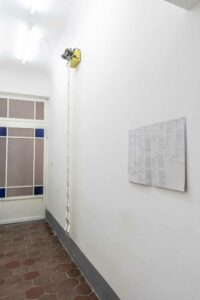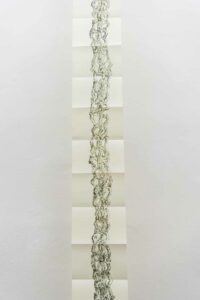Justin Randolph Thompson is a sculptor, media artist and musician. He was born in Peekskill, NY in 1979. He lives in Florence, Italy. Thompson’s work explores the meanings of cultural relics and the transformation of their meanings in the context of displacement and diaspora. With an aesthetic practice that is largely collaborative and interdisciplinary, he creates platforms and interprets community as temporary monuments. His work aims to deepen the debate on socio-cultural stratifications and hierarchical organizations by outlining hybrid, non-linear connections in history and in current socio-political discourse through installations and sound performances.
Thompson founded Black History Month Florence together with Andre Halyard in 2016 as a cross venue initiative designed to highlight the cultures of African Diasporic communities in the city of Florence and throughout Italy more generally.
On Being Present is a project curated by Justin Randolph Thompson for the Uffizi Galleries concerning the presence of Black figures in Renaissance paintings of their collection. The two-year virtual exhibition and research project invites a range of scholars to write focusing on a series of artworks in which Black Africans play a major role or embody a pivotal character in the dynamic of the work.
On Being Present Volume I and Volume II.
Crumbs in the Musicians Mouth and other works
Mixed media sculptures
In collaboration with Dame Mbaye, Bangali Cissokho
Exibition views, Villa Romana Florence
2018
The works have been created in the framework of the artistic research and exchange project Seeds For Future Memories, a cooperation between the artist residencies Thread in Sinthian, Senegal and Villa Romana in Florence, Italy in 2018 and 2019.
Tempus Tacendi
Video
2016
Tempus Tacendi (A time for silence) is a film that re-contextualizes Italian colonial narratives of migration through diasporic displacement and non-performative theatre. Drawing upon texts from playwright Vincenzo Martini’s Misantropia nella Società and Cose Affricane by his son, Ferdinando Martini, Governor of Eritrea during the Italian Colonial occupation, the piece is a non-linear meditation on Blackness and kin undercut by a capitalistic critique found in Ezra Pound’s Pisan Cantos.






